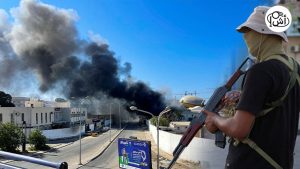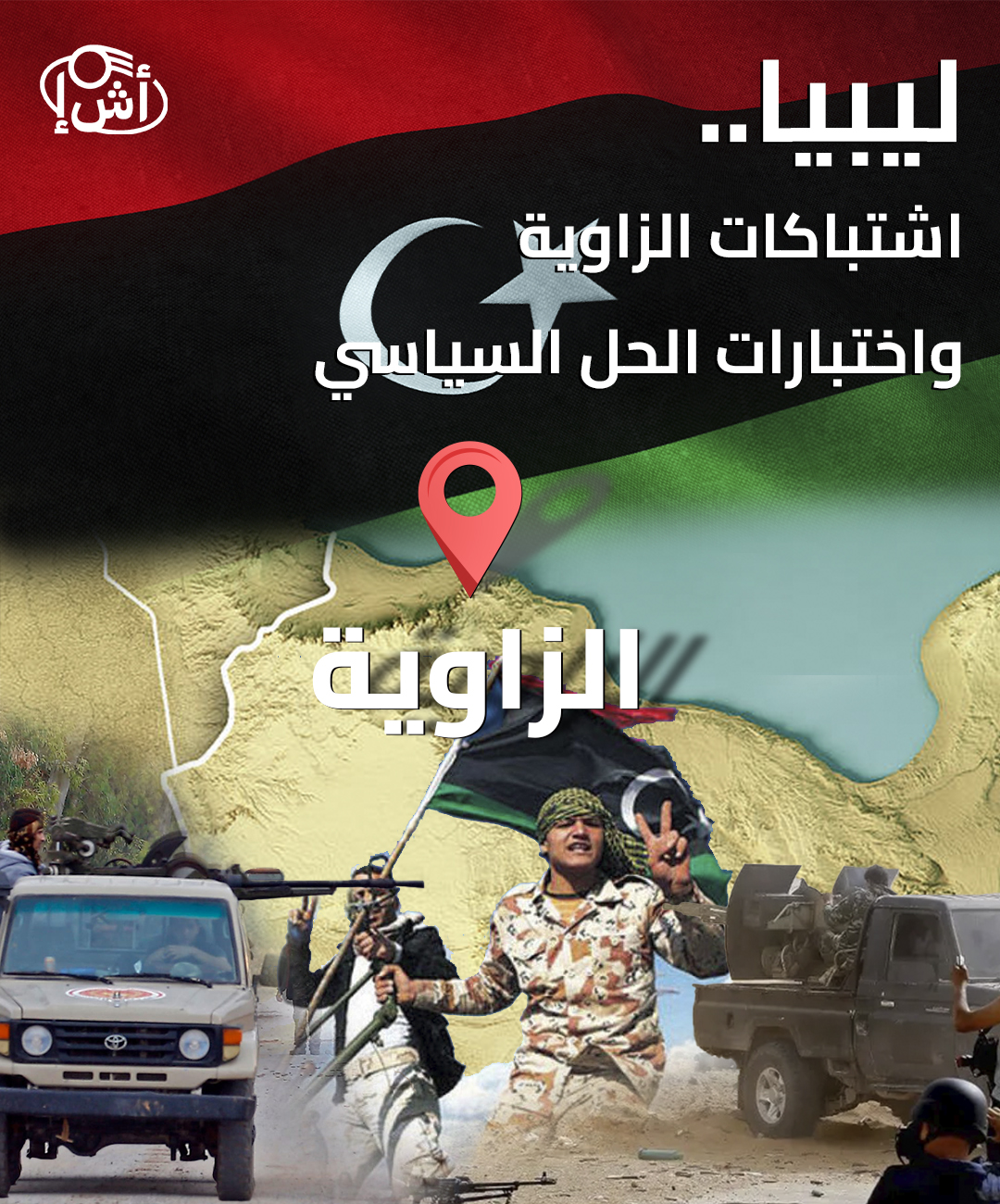The city of Zawiya in northwestern Libya was a magnet after last week’s meetings in Tunisia, where the fighting bears signs of the challenges facing political solutions.
The tension that overshadowed the city left dead and wounded, according to reports in the Libyan media, where clashes erupted after two people from the Harsha area of the city were injured, while the ambulance and emergency service warned visitors to the coastal road at Al-Zawiya to be careful and cautious due to the battles, and ambulance and emergency spokesman Osama Ali called on the Ministry of Interior of the Government of National Unity to intervene to stop the clashes in Zawiya.
The city of Zawiya is a permanent test point for all Libyan political dynamics, as it is teeming with armed groups and witnessing frequent clashes, in the past month, similar confrontations broke out between the “Aburas” militias and the “Al-Qasab” militias, two of the largest militias controlling the city and stationed inside it, which makes it difficult for security in western Libya to control the situation in light of previous decisions of the Tripoli government to find an internal balance between armed groups, as military supervision of these militias is subject to the Tripoli government and its regional and international supporters, and the inability to control The conflict illustrates the fragility of the balances that exist in that region.

Although the recent clashes are a recurring case and a manifestation of deep tensions between factions in western Libya, as the Libyan government in Tripoli found with the intensification of the conflict a challenge in securing the stability of the areas it controls, its immediate call by Prime Minister Osama Hammad for a ceasefire conveys deep concern about the escalation of violence, as efforts to mediate the conflict have extended Beyond political figures to tribal elders, highlighting the traditional conflict-resolution mechanisms that still exist within Libyan society.

Current events have also highlighted the western coastal military zone, which includes battalions tasked with protecting coastal cities in Libya, where the coastal road was previously reopened by the 103rd Battalion, but this battalion is part of the fabric of the militias deployed in western Libya, also known as the “Al-Sala Battalion” led by Othman Al-Lahab, and is referred to like the rest of the factions in western Libya as following a militant Salafi current, as the fighting that occurs frequently appears as a case of waving force by the factions. Towards the government in Tripoli.
The other aspect of the unrest in Zawiya can be linked to the broader Libyan political scene, as it came after a consultative meeting held in Tunis between members of the Libyan House of Representatives and the High Council of State, to formulate a path towards the formation of a new national government. At the heart of the electoral impasse are controversial issues such as candidate eligibility criteria, reflecting deep divisions within Libyan society. The exclusion of military and dual nationals from the nomination was a major point of contention, further complicated by the influence of external actors and the overall mandate of the UN Security Council.
All the indicators of the battles in Zawiya reflect the broader dynamics inside Libya, from the armed conflict, the mobilization of tribal and political mediation mechanisms, and ongoing efforts to transcend the country’s fraught political landscape.

On the international side, responses to the battles that are taking place varied, as the European Union, neighboring countries and the United Nations have expressed their concerns about what is happening, but the interventions are still cautious in light of the United States’ preoccupation with preparing for the main elections, and on the other hand with the war in Gaza and the diplomatic moves associated with it, and although the events that took place in Zawiya are a stark reminder of the fragility of international and regional diplomatic efforts towards Libya, but political efforts are sufficient to send warnings through the Security Council or the rest of the European and American bodies. Despite the Tunis meetings, their differences over the roadmap leading to a solution are still far away, and the basis of the constitutional rules governing the electoral process and the conditions for candidacy for the presidency are points of deep disagreement due to the governmental and administrative division and the ongoing struggle for power.
Written by Nidal Al-Khedary
Algeria buys 800 thousand tons of wheat in an international tender
